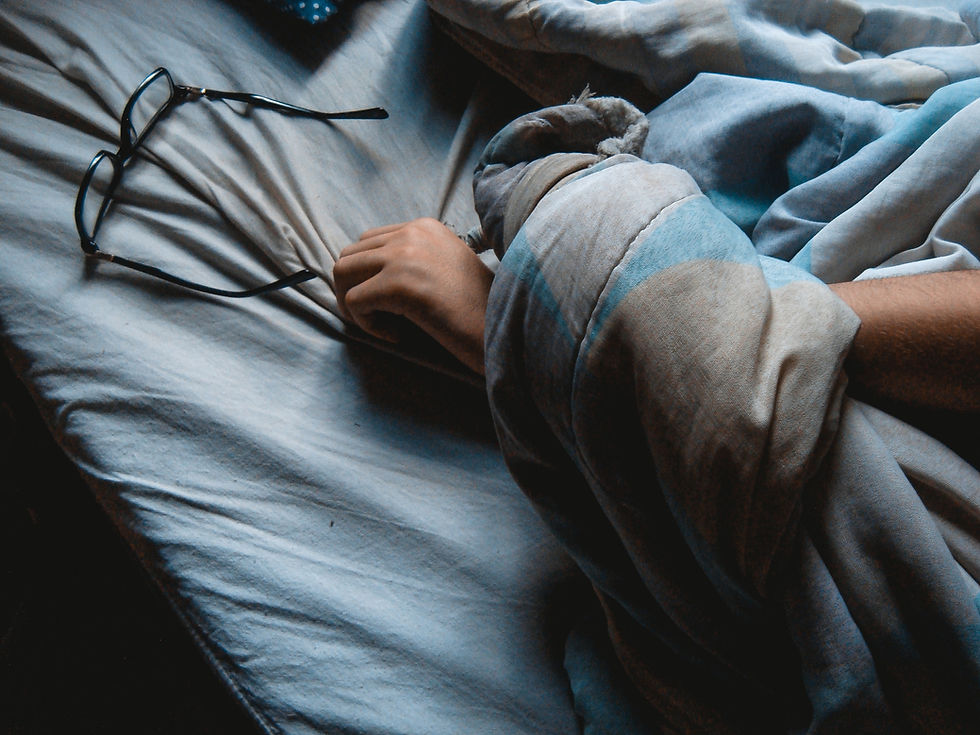Understanding Sleep Chronotypes: Unlock Your Natural Rhythms for Better Well-Being
- Dr. Jen

- Oct 13, 2023
- 2 min read
Sleep chronotypes refer to individual differences in sleep-wake patterns and preferences for different times of day. Understanding your chronotype can help you optimize your daily schedule for better productivity, mood, and overall well-being. In this blog post, we'll delve into the most commonly discussed sleep chronotypes and how they can impact various aspects of your life.

Morning Larks (Early Chronotype)
Characteristics
Prefer to wake up early and are most productive in the morning hours.
Energy levels start to decline in the late afternoon and evening.
Best Time for Work
Morning to early afternoon.
Social Life
Generally prefer daytime activities and may find it challenging to stay alert and engaged during late-night social events.
Night Owls (Late Chronotype)
Characteristics
Prefer to stay up late and may struggle with waking up early.
Peak productivity and focus often occur in the late afternoon or evening.
Best Time for Work
Late afternoon to evening.
Social Life
More comfortable with evening activities and may find it hard to engage in early morning events.
Beyond the Basics: Additional Categories
While Morning Larks and Night Owls represent the two ends of the spectrum, many people fall somewhere in between. Some additional categories that have been proposed include:
The Hummingbird
Characteristics: Falls in between the Morning Lark and the Night Owl. Fairly adaptable but may have a slight preference for morning or evening.
Best Time for Work: Late morning to early evening.
Social Life: Flexible, can adapt to both morning and evening activities but may have a slight preference.
The Dolphin
Characteristics: Light sleepers who often have irregular sleep patterns. May suffer from insomnia and can feel alert or tired at unconventional times.
Best Time for Work: Varies, as energy levels can be inconsistent.
Social Life: May find it challenging to commit to activities at specific times due to unpredictable energy levels.
Conclusion
Understanding your chronotype can help you schedule activities at times when you're most alert and productive. However, it's important to note that many external factors, such as work commitments and family life, may require you to adapt your natural preferences to some extent. Some people also find that their chronotype changes as they age or due to other life circumstances.
By gaining insights into your natural sleep-wake patterns, you can make more informed choices that align with your body's internal clock, leading to improved productivity, mood, and overall well-being.
I found out my chronotype by using my Oura ring! I am more of a night owl!
What about you?






Comments